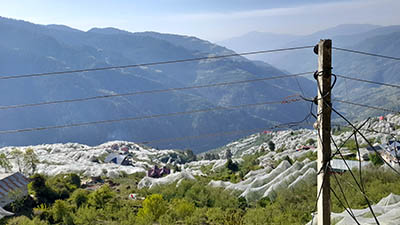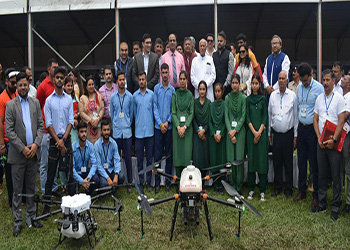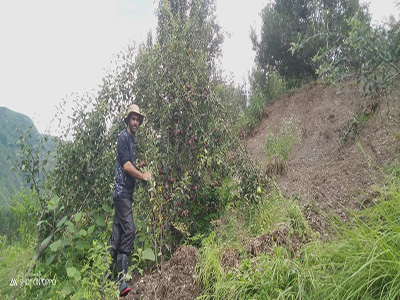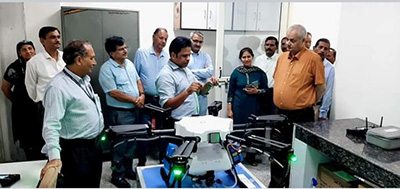SHIMLA – There are few takers for the Sukhu government's much-hyped push for using drones in spraying and other operations in apple orchards. The scientists and apple farmers dismiss the use of drones in spraying as an "ineffective and expensive" initiative that will benefit more the drone companies rather than the farmers.
There, however, is no consensus among experts.
But many say that this aerial approach is not only ineffective but also financially burdensome for the state's struggling agricultural sector.
But there are others who say that Outright rejection of drone technology for spraying may not be prudent decision by the apple growers.
They cite examples. Not all the orchardists could afford grading and packaging machines, but small and marginal growers have immensely benefited from these machines (being operated by a few on commercial lines) in terms of time, convenience and hassles of arranging labour.
Cost and benefit analysis of drone technology needs to be worked out along these lines, said Manoj Kumar, a hydro-power expert who is also an apple orchadist.
Even Prime Minister Narendra Modi had also talked of lifting apple consignments in Drones from the remote areas like Kinnaur directly to the markets.
But this also has ended as a fiasco: The question remains who will bear the expenses.
Drones could be an an option in Emergency situation, but not as new mode of transport as the cost remains a big issue and so is the capacity of drones.
The drones could be used in big consolidated farms rather in the small fragmented small farms where it can end up in litigation as the spays from on farm can stray into others' leading to war of wards or even duels, warned the experts. 
Leading the charge against this high-flying venture, the former Vice Chancellor of Dr. YS Parmar University of Horticulture and Forestry Nauni, Solan Dr Vijay Singh Thakur, who himself is also an orchadist from Jubbal remarked that the majority of farmers in the region operate on the principle of "availability of land," rather than "suitability of land."
This perspective makes drone applications unfeasible for a significant portion of the farming community, with around 80% of farmers tending to small, scattered holdings in remote villages, he said.
The fundamental issue here is that most pests and pathogens tend to strike from the underside of leaves, making ground-based spraying more effective, Dr Thakur said.
Many farmers have joined issue with him saying that the Drones, which deliver their payloads from above, do not align with the needs of these farmers.
Also, the cost of implementing drone technology can skyrocket to as high as as 12 lakh of a mid-sized orchard.
This is very high expenditure that cannot be justified within the framework of smart agriculture and the struggling local economy, the scientists observed.
Another challenge is the dearth of engineering support in remote areas.
Farmers in these regions often struggle to find even basic repairs for their traditional equipment, and spare parts remain costly and difficult to procure.
The use of chemicals in these orchards is also largely traditional. The drone-compatible nano-engineered solutions being the exception rather than the rule.
In light of these practical challenges and the government's push for national natural farming, farmers feel that the promotion of nano chemicals and drone technologies is at odds with their interests.
Moreover, the government's financial support of 6000/- for farmers seems insufficient to address the looming concerns of the farming community.
As a result, the government's drone spraying initiative is facing severe backlash, leaving farmers questioning the impact it may have on their livelihoods and traditional agricultural practices."
The drones, however, can be used to drive away birds and animals from the orchards and crops others traditional methods use of air guns, beating of empty tins etc have been rendered ineffective.
The bats prey in night hours while the other daytime preying birds have learnt to live with the farmers tactics and are rarely scared of these things.
The government before taking initiatives should take farmers and scientists in loop rather than rushing into implementing new initiatives and equipment.
The farmers have kept their fingers crossed on the use of drones in farming.




